IN ENGLISH
MONTY PYTHON RUSSIAN SPIES HUNT IN MONTENEGRO: FOREIGN INTELLIGENCE SERVICES AND THEIR LOCAL ASSETS
Objavljeno prije
2 godinena
Objavio:
Monitor online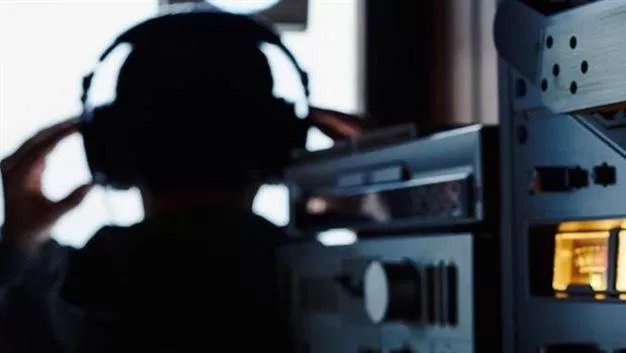
Is the recent hunt on alleged Russian spies a cunning attempt to conceal the Kremlin ties with people around President Djukanovic? Djukanovic and his chief advisor Milan Rocen are accused of being the prime Russian asset in the country
Montenegro Parliament’s Security and Defence Committee held a public hearing over the recent operation of the country’s National Security Agency (NSA) which allegedly was conducted together with its “western partner services”. Reportedly tens of Russian spies were arrested. However, the public hasn’t heard a single Russian spy name. Only the name of a retired Foreign Ministry official Radomir Sekulovic and his best man came out. Mr Sekulovic was allegedly the head of Russian spy network in Montenegro. At the end, instead of espionage, the aforesaid two men have ended up being charged for illegal possession of a pistol and a few bullets. Some media published “reliable NSA information” that Sekulovic “had confessed everything” and therefore he was spared from indictment. Sekulovic publicly denied the charges.
Espionage and connections with intelligence services has been a valued business in Montenegro since the Ottoman days and perpetuated under Yugoslavia’s strongman Josip Broz Tito. Although the Montenegrins made up only about 2.5 percent of the Yugoslav population, the share of high-ranking Montenegrins in the security services in post-war Tito’s Yugoslavia was almost ten times the average. When Tito broke with Stalin in 1948 many Montenegrins were sacked and arrested for siding with Russia. The infamous concentration camp in Goli Otok (remote island in Croatia) received a disproportionately large number of Montenegrins. Many ended up there only due to false reports and snitching since those loyal to the Yugoslav regime worked hard to turn in as many “enemies of the people” as possible. The legacy of Goli Otok has left a deep mark in the national identity of Montenegro in the following decades.
The euphoria of working for spy agencies returned big way with the “Anti-bureaucratic Revolution” in Montenegro and its “spontaneous protests” in 1990 organized by the Serbian intelligence service (UDBA) under Slobodan Milosevic and his Yugoslav Army Counterintelligence Service (KOS). The result was the installation of Momir Bulatovic, Milo Djukanovic and Svetozar Marovic to run the puppet regime in Montenegro. In the fervour of Greater Serbian nationalism and the unfolding war, the notorious trio persecuted everyone who was considered pro-western, liberal and democratic. Journalists, human rights activists, opposition leaders and anyone who opposed war, mafia and corruption were regularly labelled as CIA, MI-6, and BND collaborators. On the other hand, Serbia, Russia, and China were role models.
Now, formally speaking, the situation is reverse. Once dominant Democratic Party of Socialists (DPS) and its leader Milo Djukanovic cry about “malignant influence” of Russia and Serbia everywhere. Moreover, they claim that they fight against the new enemies together with “partner services” – the same CIA, BND and others which the DPS once termed as “enemies of Serbian people and Montenegro”. However, the Chinese Communist Party (CPK) remains revered by both President Djukanovic and his archenemies in the Democratic Front (DF). Both Djukanovic and the DF leaders sent warm regards and praises to the Chinese for the recent CPK Congress.
The public hearing before the Parliament’s Security and Defence Committee (SDC) held on October 28 largely resembled the well-known television comedy – Balkan Spy. SDC summoned the recently sacked National Security Agency’s (NSA) chief Savo Kentera and the dismissed Foreign Minister Ranko Krivokapic. The idea was to review the recent NSA operation allegedly conducted with “Western partner services”. According to Mr Krivokapic’s statement at the time of the alleged operation “dozens (of spies) have been apprehended”. At the end, it was much ado about nothing.
The news outlets further reported that among 28 “Russians” who were declared personae non gratae, several of them were actually Serbian citizens. The first on the list is Vladimir Bozovic, the (pro-NATO) ambassador to Montenegro who was already declared persona non grata in the last days of the outgoing Djukanovic-led government in 2020. Others are Vladimir Mandic– a former Serbian handball national team player and Dane Sijan – also famous handball goalkeeper in the former national team of Serbia and Montenegro. The list reportedly includes prominent church figures – Podgorica archdeacon Velibor Dzomic and Dajbabe Monastery Abbot Danilo. Dzomic used to coordinate the Legal Council for the Diocese of Montenegro and was often seen in the company of Djukanovic’s tycoons. In addition to the aforesaid, six employees of the Russian Embassy in Podgorica were expelled. Thus the official embassy staff came down to the ambassador and his chargé d’affaires.
The SDC chairman and one of the leaders of the Democratic Front (DF), Milan Knezevic accused Djukanovic-faithful ex NSA boss Kentera for “targeting the entire Serbian nation and its priests” and added that Kentera was “a registered CIA agent”. Knezevic pointed out that “if anyone should be arrested and interrogated that’s none other than Milan Rocen. He is the chief Russian operative in Montenegro”. Mr Rocen is top Djukanovic’s advisor in charge of his foreign policy and capital investments. He was also the protégé of arrested and then released Mr Sekulovic.
Former foreign minister Krivokapic accused Knezevic of “following orders from outside”, alluding to official Belgrade and the Kremlin. Knezevic retorted that whoever claimed that he worked for foreign interests is “a damn liar and a scoundrel”.
The former NSA chief Kentera said at the beginning of his testimony that his late father had built a church to St. Sava in Pastrovici, whereas he attended church services when others did not dare (in communist days). He added that “those who have no respect for this state, her institutions and the system should have no business here”. Kentera explained that “all those names were put on the list for a reason”. Kentera, just like Krivokapic before, tried to connect his sacking with the alleged operation against the Russian spy ring. “We started to eliminate the spy network but we were eventually foiled in the middle of it” Kentera said.
Prior to being appointed to head the NSA in a compromise between reformist Prime Minister Dritan Abazovic and his opponent President Djukanovic, Kentera was heading the Atlantic Council of Montenegro (ACofM) for many years. He was often seen in the company of American and other Western diplomats and officials of the Alliance. Kentera-led NGO was formally propagating Montenegro’s NATO accession. ACofM also received generous donations to set up the Digital Forensic Center (DFC), which was meant to fight disinformation and promote Western values.
However, in mid-September 2021, DFC published a detailed study of Russia’s Influence in the Balkans – The Case of Montenegro. The Study was translated and distributed to foreign diplomats by DPS officials. The contents of the Study on Russian malign influence in Montenegro pretty thoroughly rely on DPS party communiques and the narratives of the former Chief Special Prosecutor Milivoje Katnic (who was previously a loyal military counterintelligence official under Slobodan Milosevic).
The DFC study “studiously” avoided any reference to well-known links of Djukanovic’s and his DPS with Russian intelligence, mafia and oligarchs. DFC conveniently dropped to mention that Russia was the key international player which supported Montenegrin independence back in 2006 and that disgraced Trump’s campaign chief Paul Manafort had been hired with Russian money to campaign for Montenegro’s independence. The DFC pointed to the cooperation agreement of Milan Knezevic’s Democratic People’s Party (DNP- part of the Democratic Front coalition) signed with Putin’s United Russia. On the other hand, the DFC skipped to mention that Djukanovic’s DPS had signed the same strategic cooperation agreement with Putin’s party already back in 2011 and has never revoked it since. Then DPS spokesman Rajko Kovacevic (and later Djukanovic’s chief of staff) said “that DPS does not recognize the (Putin’s) party as dictatorial. United Russia is a party that has 315 out of 450 deputies in the Russian Duma. Thus we are the right address for talks and strategic cooperation and interests that we want to develop”. The DFC also bypassed a large number of State Department reports on Russian money laundering in Djukanovic’s fiefdom and the installation of Russian intelligence agents in the state institutions of Montenegro under Djukanovic-led government. Furthermore, the DFC study does not contain a single word about havoc wreaked in Montenegrin economy by KGB/FSB “investors” who had taken over Podgorica Aluminium Plant (KAP), Niksic Steel Mill and prestigious hotels on the coast. The Russian “investors” walked away with hundreds of millions of euros and left further hundreds of millions of debts – all with the blessing of the supposedly pro-EU and pro-NATO DPS authorities. The property of Oleg Deripaska is still intact and safe in Montenegro even though Deripaska is under Western sanctions introduced after Russia invaded Ukraine in February this year.
It is also interesting that all To Be Secure (2BS) conferences of the Atlantic Council and Mr Kentera were held in Hotel Splendid. Its founder and majority owner is none other than the former director of the KGB/FSB General Viktor Ivanenko. His ownership is easily verified by a simple check in the public business registry – CRSP. The fact that a retired chief intelligence officer of Russia owns a prestigious hotel chain in Montenegro seems to be totally irrelevant to Kentera’s Atlantic Council and thus unworthy of a single reference in the DFC Study. Moreover, the profile of widely known main hotel guests and tenants who are from the same criminal and intelligence milieu is something that the DFC study chooses not to mention at all. Perhaps this is among the reasons why the main Western embassies have been very silent on the dismissal of pro-Djukanovic Kentera, Ranko Krivokapic and Rasko Konjevic (former defence minister). In informal conversations with Monitor, several diplomats from the old members of the Alliance pointed that the main Russian influence in Montenegro was still exercised through people in Presedent Djukanovic’s inner cirle “because the lucrative ties with the Russian mafia and intelligence are not something that you easily cut off, despite sweet-talking rhetoric”.
Andrija Mandic –another leader of the pro-Russian Democratic Front (DF) indirectly admitted at the public hearing that Russia prefers Djukanovic’s DPS over his political organisation for strategic cooperation whereas his DF is reduced to the role of “useful idiots” (KGB terminology). “While we were fighting the biggest battle to preserve our common state (with Serbia), do you know who was supporting independent Montenegro? Exactly those (Russian) partners of Milan Rocen” adding that the DPS “didn’t mind their help to achieve independent Montenegro… the (intercepted) phone conversations have been published, there’s evidence and now you play completely dumb and point finger at us”. In addition, Andrija Mandic implicitly admitted that during so-called coup d’état trial the Serbian services were actively helping Djukanovic and Katnic (former Chief Special Prosecutor) by supplying them the so called evidence.
Moreover, Mr Mandic compared the current role of Mr Rocen to the role of Tito’s chief intelligence officer, Ivan Stevo Krajacic. He explained that “after Krajacic’s death, Russian agents came to take over his radio station which he used to report to Moscow frequently”. Thus, “what Stevo Krajacic used to be in Tito’s Yugoslavia, now is Milan Rocen in Montenegro”. Mandic added that Mr Rocen is “the main protagonist of (Kentera’s) values” with whom he chases “alleged Russian agents around Montenegro and play double and triple games of all kinds in the security services theatre”. Mandic further revealed what socializing with foreign diplomats looked like from his side during August 2020 elections saying that “the lead person on our list (former PM Zdravko Krivokapic) could hardly wait (after electoral victory) to go to the American embassy and ask what he should do”.
The pro-Djukanovic and the pro-Serbian media in Montenegro have been visibly silent on allegations against President Djukanovic’s chief adviser Milan Rocen that he is the actual head of the Russian spy ring in Montenegro. DPS-controlled media are silent about its ties with Russia, while pro-Serbian portals find it hard to digest that much beloved Putin prefers Milo over Montenegrin Serbs. So far, the Prosecutor’s Office hasn’t responded to direct calls of the Prime Minister Dritan Abazovic and the DF leaders to investigate Rocen’s and Djukanovic’s links with Russia.
Memory of love
Despite the strategic orientation of Montenegro, relations with Russia will always be among the mainstreams of our strategic foreign policy. No one can replace Russia – neither the European Union nor NATO. These are not empty words – Milan Rocen (RIA Novosti 2007)
Jovo MARTINOVIĆ
Komentari
IZDVOJENO
-
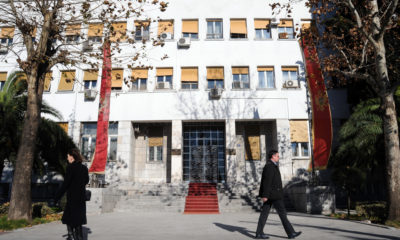

NATEZANJE HAOSA: Pazi, pući će
-


KO SVE RADI I ZA KOJE STRANE SLUŽBE: Špijunski Monti Pajton u Crnoj Gori
-
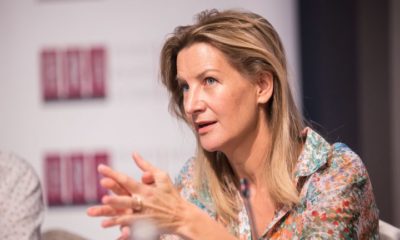

TEA GORJANC PRELEVIĆ, DIREKTORICA AKCIJE ZA LJUDSKA PRAVA: Pravna struka se predaje, političari ne poštuju pravni poredak
-
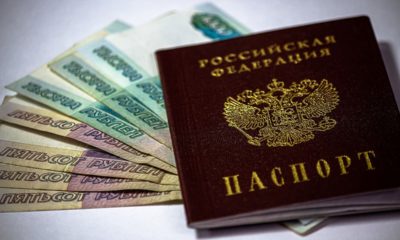

TOKOVI NOVCA IZMEĐU CRNE GORE I RUSIJE: Biznis cvjeta uprkos sanckijama
-
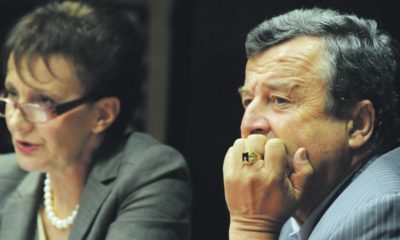

KAKO SU UNIŠTAVANE PLANTAŽE: Umjesto briketa „spalili“ milione
-


TORTURA POLICIJE: Odgovorni u policiji ne snose odgovornost
IN ENGLISH
Government Summons Ambassadors for Consultations and Instructions: A Foreign Policy Tightrope
Objavljeno prije
1 sedmicana
12 Aprila, 2025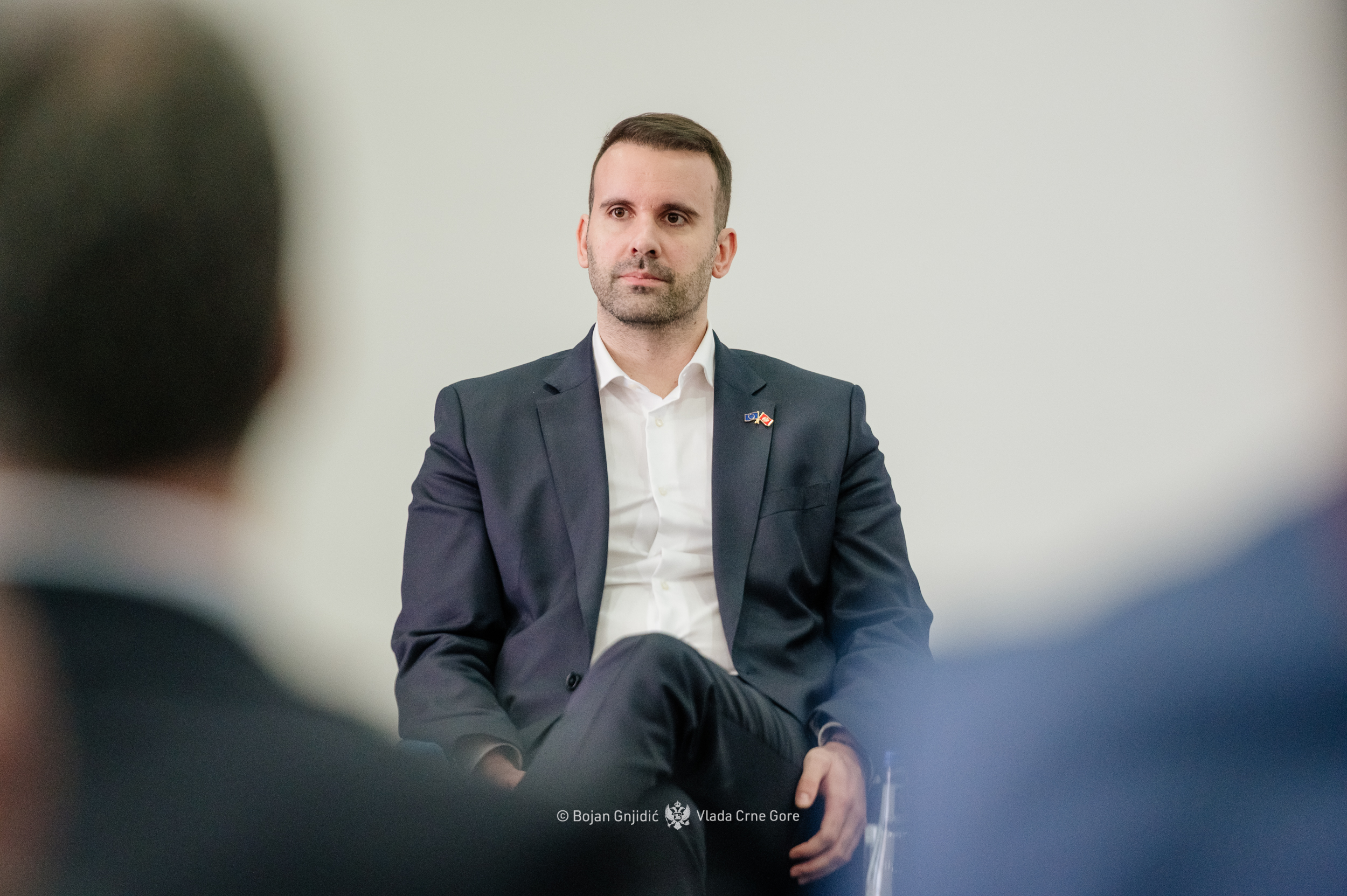
Prime Minister Milojko Spajic recently held a series of individual meetings with Montenegrin ambassadors—from Ukraine to Europe to the United States. Informal sources within the government say that during these meetings, the Prime Minister outlined a new geopolitical landscape shaped by Donald Trump’s return to power in the U.S. and evolving dynamics with the European Union
At the end of February, the Ministry of Foreign Affairs (MFA), led by Minister Ervin Ibrahimovic, summoned nearly all Montenegrin ambassadors stationed in Europe and the U.S. for urgent consultations, set to begin on March 6. The move sparked anxiety among some diplomats, who feared a repeat of the events of November 15, 2024, when three ambassadors were abruptly dismissed.
Monitor finds out that Spajić met separately with key diplomats, including Ukraine-based Borjanka Simicevic and U.S.-based Jovan Mirkovic. However, the concerns of mass dismissals proved unfounded. Instead, sources say the Prime Minister emphasized Montenegro’s continued commitment to the EU and instructed ambassadors to maintain a clear, pro-European stance. At the same time, he advised them against making any public criticisms of the United States or commenting on current rifts between the U.S. and its European allies.
Montenegro’s calibrated position became evident on March 11 at a meeting of top European military officials in Paris, where strategies for supporting Ukraine were discussed following Washington’s announcement of a suspension in military aid. The U.S. was not invited to the Parish meeting as the European leaders were keen to show they could step up independently if needed. Though an AP report initially stated that only Montenegro and Croatia, among NATO’s European members, failed to respond to the invitation, the Prime Minister’s Security and Defense Advisor, Todor Goranovic, told Radio Free Europe (RFE) that Montenegro would indeed participate. However, only the deputy military representative to NATO in Brussels attended because “Chief of General Staff Zoran Lazarevic was officially visiting Bulgaria at the time” – Goranovic explained.
Meanwhile, dissatisfaction is growing within Montenegro’s ruling coalition over Ambassador Mirkovic’s performance (or the lack thereof) in Washington. Tensions reportedly flared after a mid-February meeting with U.S. officials where he suggested that the fall of Serbian President Aleksandar Vucic could weaken some of his Montenegrin puppets. The details of the aforesaid meeting could not be independently confirmed. The subsequent report sent to Podgorica reportedly angered Spajic’s coalition partners from the former Democratic Front (DF). Although the DF was not directly mentioned in the report, its officials saw themselves as being referred to by the ambassador. One of them even retorted that those remarks would be a ground for the ambassador’s recall.
Discontent also emerged from the opposite ideological camp. Metropolitan Boris of the Montenegrin Orthodox Church (MOC) sent a protest letter to Minister Ibrahimovic, complaining that the embassy in Washington did not engage with the MOC delegation during their visit. The embassy, he wrote, failed to meet with them or assist in organizing meetings with U.S. officials. Furthermore, Metropolitan Boris complained that the embassy was “ignorant of some names and institutions that we wanted to reach out to”. He directly blamed the ambassador for the embassy’s dismissive stance.
As Monitor has previously reported, the embassy in Washington is increasingly out of sync with developments in the U.S. The once-prominent Montenegrin Caucus in Congress, which boasted 42 members under former ambassador Srdjan Darmanovic, has effectively dissolved. It’s now reduced to a single member—Congresswoman Chellie Pingree from Maine. Darmanovic had successfully lobbied to counter opposition to Montenegro’s NATO membership, despite concerns over ties of the Djukanović government with foreign criminal networks and Russian intelligence services.
Pingree reportedly sent multiple letters to the embassy criticizing the lack of engagement, but received no response. Monitor also reached out to her office twice for comment but had not received a reply at the time of publication.
Diplomatic affairs aren’t running smoothly in Europe either. In late January, the government approved the appointment of 14 new ambassadors. The list was coordinated with President Jakov Milatovic, whose signature is required for the appointments. Opposition parties and members of the pro-Serbian bloc raised objections, particularly over the inclusion of figures associated with the long-ruling Democratic Party of Socialists (DPS) and former foreign minister Milan Rocen.
One such appointee is Dragana Radulović, a longtime diplomat and former advisor to Prime Minister Dusko Markovic. She was posted to New York as Montenegro’s representative to the UN. She has been in diplomacy since 2000. Internal sources indicate that Veljko Milonjic initially hoped for the post in New York but was instead sent to Warsaw. Milonjic is remembered for his involvement in the so-called “cocaine affair” of 2015 when he was the head of Montenegro’s consulate in Munich. A truck from Munich carrying drugs under diplomatic seal was intercepted at the Austrian border. Though the Ministry of Foreign Affairs denied direct involvement, the incident cast a long shadow. Milonjic denied wrongdoing but was quietly recalled while the Consulate General in Munich was closed down. Milonjic was later appointed to a senior diplomatic post despite the scandal never being prosecuted. The truck driver, Sasha Mugosha, was sentenced to six years in prison. He was released after serving two and a half years and deported to Montenegro.
In March, the government announced that former German Bundestag member Holger Haibach had been appointed as a senior special advisor to Prime Minister Spajic, beginning January 1. Haibach will advise on regional relations in the Western Balkans and support EU accession efforts. His services will be funded by Germany’s Center for International Peace Operations (ZIF). While Haibach’s selection followed a public hiring process, sources in the diplomatic community question his current influence in Berlin. Haibach, a former CDU member of parliament, left office in 2011. Meanwhile, Veljko Kustrov, a Herzegovinian with close ties to Spajic, is considered his main point of contact in Germany.
Perhaps the most controversial diplomatic appointment so far is that of Dusanka Jeknic, a figure from the 1990s linked to the Djukanovic regime and repeatedly associated with cigarette smuggling. However, the Italian prosecutors could not present sufficient evidence against her in court. Jeknic was assigned to the embassy in Turkey after President Milatovic purchased property from her in Podgorica. Milatovic later claimed he had not been consulted on her appointment, stating that such decisions were under the MFA’s jurisdiction. He emphasized that his property purchase had been properly reported to Montenegro’s Agency for the Prevention of Corruption.
Previously, Milatovic had criticized the appointment of Predrag Drecun to lead Montenegro’s Investment Development Fund because of his close ties to the Djukanovic regime.
Montenegro is yet to drive a long and bumpy road before it gets a professional diplomatic network.
Jovo MARTINOVIĆ
Komentari
IN ENGLISH
TWILIGHT OF MONTENEGRIN INTERESTS IN AMERICA: Prayer Breakfast Instead of Real Diplomacy
Objavljeno prije
1 sedmicana
12 Aprila, 2025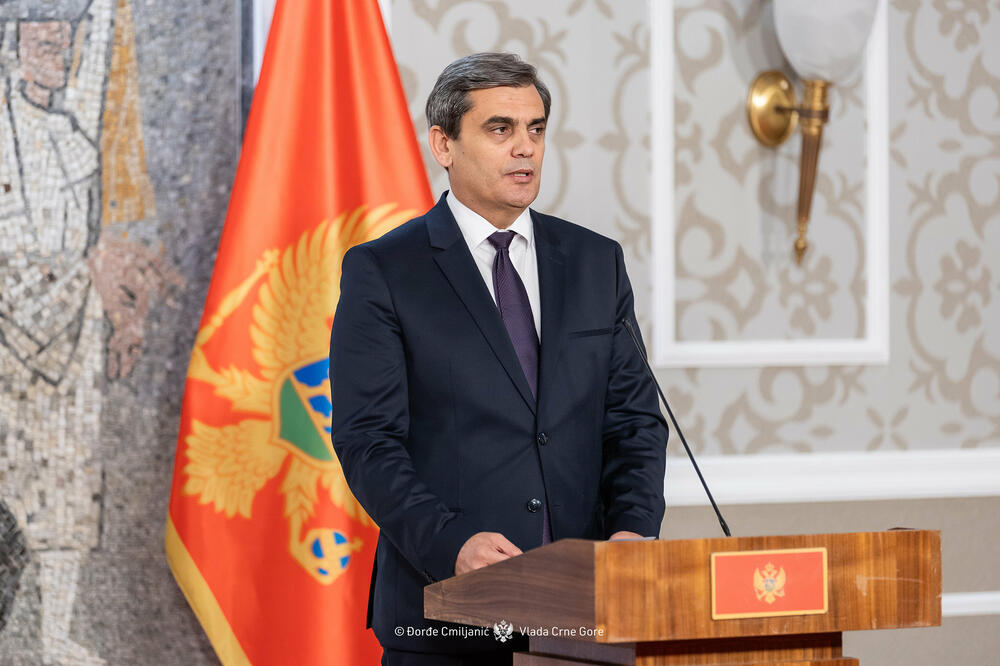
Aside from occasional trips and engagements with diaspora organizations, Montenegro shows little sign of having a coherent lobbying strategy in the United States. With the retirement of Congressman Doug Lamborn, the Montenegrin Congressional Caucus has dwindled to just one representative: Congresswoman Chellie Pingree from Maine
The 73rd annual National Prayer Breakfast in Washington recently took place, drawing more than three thousand leaders and prominent figures from politics and civil society from around the globe. Over the course of two days, participants had opportunities to network and exchange ideas at the Hilton Hotel, under the official patronage of the U.S. President.
Invitations were extended to a broad range of Montenegrin officials, including Prime Minister Milojko Spajic, Foreign Minister Ervin Ibrahimovic, Deputy Prime Minister for Economic Policy Nik Djeljoshaj, Minister of Urban Planning Slaven Radunovic, Minister of Transport Maja Vukicevic, and Minister for Human and Minority Rights Fatmir Djeka. Parliamentary invitees included many MPs, both from the opposition and the majority. Former President Milo Djukanovic and his close aide Branimir Gvozdenovic received invitations as well as several other ex officials. Also in attendance was Vijesti columnist and co-founder Zeljko Ivanovic—reportedly the only one whose travel wasn’t funded by taxpayers.
Branimir Gvozdenovic is often featured in pro-DPS (Democratic Party of Socialists) media as a regional liaison for the Prayer Breakfast. However, his name is absent from the official records of the event’s organizing foundation. Meanwhile, the Montenegrin delegation was accompanied by support staff including security, administrative personnel, and translators — necessary, since only Minister Vukicevic speaks fluent English. Translation was required for Djukanovic, Gvozdenovic and most MPs.
The cost of attending the Prayer Breakfast—including registration fees, three nights in a hotel, airfare, and daily allowances (currently €112 per day) — typically totals around $3,000 per person. When accompanying staff is added, the total bill reaches into the tens of thousands of euros. Out of the entire group, only Ministers Ibrahimović and Djeka were scheduled for official meetings at the U.S. State Department.
Minister for the Diaspora Adem Azemovic, representing the Bosniak Party, made his second trip to the U.S. in a month, accompanied by two associates. In late December, he met with Naser Nika, head of the Albanian-American Association of Staten Island. After the New Year he returned to meet him again. When asked why a second meeting was necessary, the Ministry explained that the first encounter had been brief, and the second was based on an official invitation. The association, which includes Albanian Montenegrins living in Staten Island, was praised for promoting Montenegro in New York.
Azemovic also visited the New York State Assembly, which is reportedly considering hosting Montenegro’s Independence Day celebration. His office described this as an opportunity to mark one of the country’s most significant holidays in a high-profile setting. Interestingly, Montenegro’s Independence Day was already celebrated at New York City Hall on May 23, 2024, in an event organized by the Albanian-American Association of Ulcinj. That celebration included Montenegro’s Consul Amer Cikotic and the Association’s president Dzelal Lanica. Nika had publicly criticized the event on Facebook, claiming that it misrepresented interethnic relations in Montenegro and highlighted Serbian political influence via Serbian President Vucic-backed factions.
Despite these diaspora engagements, there is little to suggest that Montenegro has any serious lobbying efforts in Washington—particularly with key decision-makers. Nebojsa Medojevic, leader of the Movement for Change (PZP), remarked that “Montenegro simply failed to grasp the magnitude and significance of political changes occurring in the U.S.”
“The current ambassador —Professor Jovan Mirković is openly anti-Trump and a personal ally of Aco and Milo Djukanovic” Medojević stated. “He has no meaningful contacts in Washington and no ideological alignment with the current direction of U.S. politics, so it’s unclear who or what he’s even representing.” He went on to question the competence and professionalism of the current government’s foreign policy team.
Interestingly, Nebojsa Todorovic, the former chargé d’affaires in Washington, had warned the Ministry of Foreign Affairs (MFA) and the government in late 2023 to prepare for a potential return of Donald Trump.
Since arriving in Washington in mid-September, Ambassador Mirkovic has maintained a notably low profile. His biography reveals he spent several years in Russia during the early 1990s—the same period when Milan Rocen was serving as minister-counselor at the Yugoslav embassy. Sources claim that Mirkovic has family ties in Russia and is known for his longstanding loyalty to the Djukanovic regime. Neither Djukanovic nor his Democratic Party of Socialists (DPS) have ever renounced their 2011 strategic cooperation agreement with Putin’s United Russia. In fact, the DPS publicly reaffirmed its pride in these ties in Parliament last year.
With the departure of Doug Lamborn—one of the Montenegrin Caucus’s co-chairs—the group now counts only a single member: Congresswoman Chellie Pingree. Meanwhile, Serbia has been actively growing its influence. Foreign Minister Marko Djuric, a former ambassador to Washington, has built up the Serbian Caucus to nearly 40 members. Djuric even boasted that Serbia, though not a NATO member, has stronger U.S. ties than Montenegro.
Some claim that Serbia pressured Podgorica through influential regional businessmen into sending a low-impact figure to Washington. The contrast with past Montenegrin diplomacy is stark: Under Ambassador Srdjan Darmanovic, the Montenegrin Caucus had grown to 42 members, surpassing even the Albanian caucus. Darmanovic worked closely with Congressman Mike Turner to gain U.S. support for NATO accession—despite Djukanovic’s regime then-notorious links to organized crime and Russian intelligence services.
Efforts to revive the caucus were briefly relaunched by Nebojsa Todorovic, who during his stint as chargé d’affaires in 2023 helped re-engage 10 U.S. lawmakers, including Turner and other influential committee chairs such as Michael McCaul and Robert Aderholt. For a brief period, Montenegro held a unique status in the Balkans, with three Congressional committee leaders in its caucus.
However, Todorovic has since been recalled, and with him, much of Montenegro’s presence in Washington has faded again into inertia.
This raises uncomfortable questions: Is Spajic’s government reverting to the old practice of conducting diplomacy through informal channels and business networks, as seen under Djukanovic and his top advisor Rocen? At the time, oligarchs like Oleg Deripaska and other Putin loyalists were reportedly enlisted to lobby for Montenegro in the West.
That line of approach came at a steep cost to the country—and its reputation.
Jovo MARTINOVIĆ
Komentari
IN ENGLISH
2BS FORUM IN KGB HOTEL: Atlantic Council of Montenegro – who and what it represents?
Objavljeno prije
6 mjesecina
7 Novembra, 2024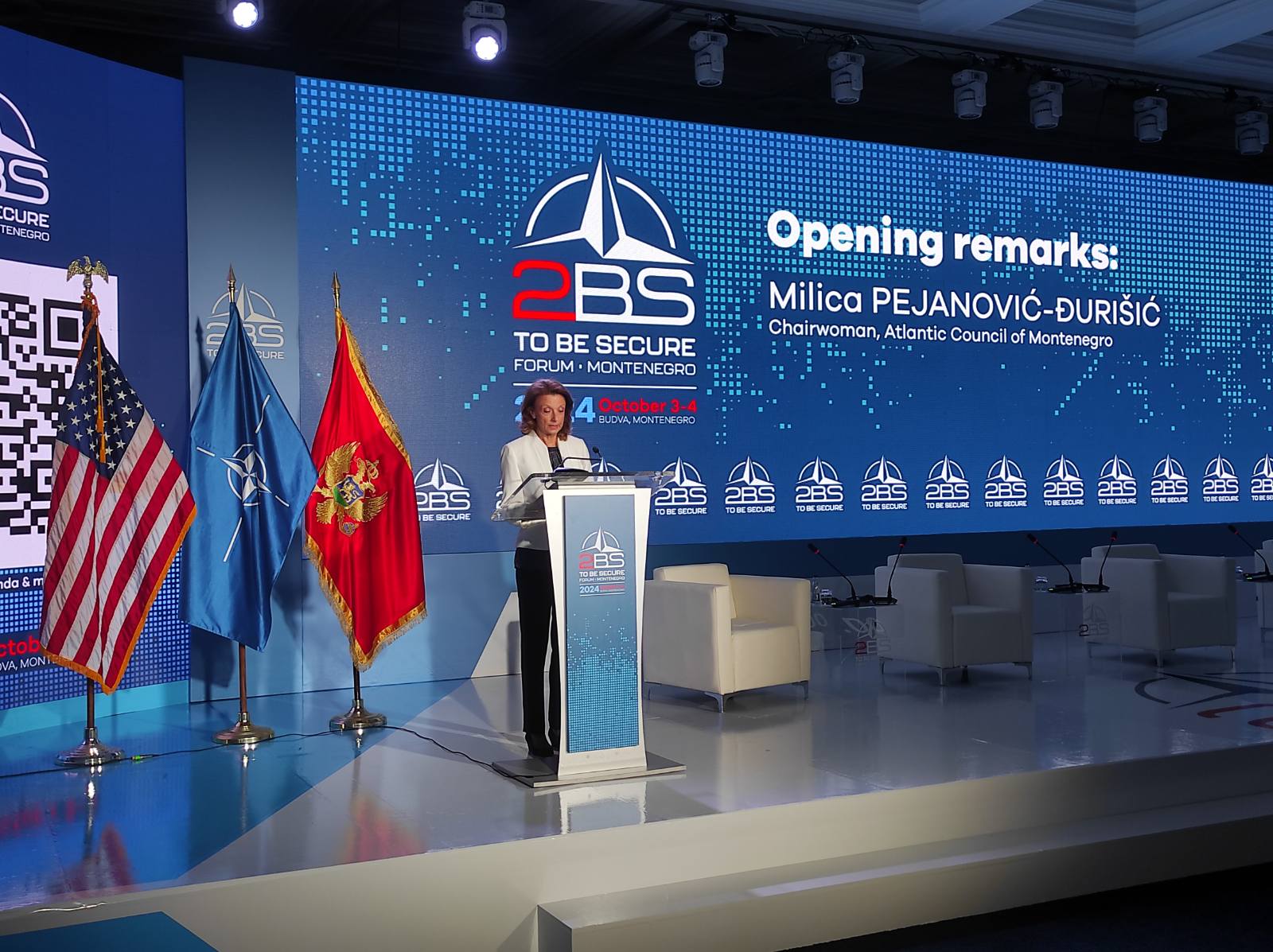
The current ACM chairperson is Milica Pejanovic – Djurisic, a long-time official of the once ruling DPS, former minister of defence and a reputable senior diplomat. The activities of the ACM are realised through three centres of which the Digital Forensic Center (DFC) comes to the fore. DFC was founded in 2018 and has released a number of publications on Russian malign influence, mainly from the view point of DPS
Last week (3-4 Oct) the 14th To Be Secure Forum Montenegro (2BS) took place in Hotel Splendid in Becici – Budva, under the auspices of the Atlantic Council of Montenegro (ACM). Its website states that 2BS is a leading politico – security conference in Southeast Europe. This year’s topic is World in Disorder: Turning Adversity into Opportunity with a focus on the repercussions and security challenges in the Western Balkans.
The event brought together more than 400 participants including government officials, high-ranking representatives of international organisations and diplomatic missions, and prominent experts in security and international relations. ACM points out that “it has devoted itself to the promotion of Euro-Atlantic values and international security since it was founded in 2006”. In the same year, the ACM became a member of the global Atlantic Charter Association (ATA).
The current ACM chairperson is Milica Pejanovic – Djurisic, a long-time high official of the Democratic Party of Socialists (DPS). She was also a Minister of Defence and a reputable senior diplomat. The ACM activities are carried out through 3 centres, of which the most exposed is the Digital Forensic Center (DFC) founded in 2018. DFC has released a number of publications on the subject of Russian malign influence, mainly from the view point of DPS. Allegedly, the DFC was founded in order to “fight against disinformation, fake news and propaganda campaigns aimed at destabilising democratic processes in Montenegro and the Western Balkans.”
The founder of the 2BS Forum and the DFC is Savo Kentera from Budva. He chaired the Montenegrin Atlantic Council from 2008 until May 2022, when the minority government of PM Dritan Abazovic (supported by DPS in the national assembly) appointed him to head the National Security Agency (NSA). Mr Kentera lasted little less than 5 months. As soon as the 12th 2BS Forum in Becici was over, he was sacked by the government following the DPS termination of support to Abazovic after he signed signed the controversial Concordat with the Serbian Church (SOC). Prior to his sacking Mr Kentera launched an NSA operation against Russian spy network, allegedly in cooperation with international partners and the Special Prosecutor’s Office (SPO). Two Montenegrin citizens were arrested, 6 Russian diplomats were expelled, and 28 foreigners were barred from entering the country.
However, the whole operation turned out to be a farce. Eventually, the two Montenegrins were not accused for espionage. Only one was suspected for illegal possession of weapons. No trial has ever taken place.
It is worth noting that the 2BS Forum founder (who claims that he supports Euro-Atlantic values) for many years chose the same hotel for the conferences. The founder of Hotel Splendid and its majority owner is now late Viktor Ivanyenko – retired director of the infamous KGB. During his term under President Boris Yeltsin, the service changed its name to the Federal Security Service (FSB). How a state employee and the chief of spies of the Russian Federation (and with money of dubious origin) came to own 4 hotels on the Montenegrin coast was never a reason for any concern, let alone inquiry, while the country was led by so-called pro-western Milo Djukanovic.
The Russian president Vladimir Putin (who was also at the helm of FSB following Ivanyenko’s retirement) said in 2004 that “ there is no such thing as a former KGB man”. The hotel is known as a meeting place of Russian intelligence and foreign and local business people and/or criminals. One of them, very close to Djukanovic, was put on the US Treasury’s blacklist, while another of his buddies is now under the protection (from going to prison) of Aleksandar Vucic.
Not only politicians and criminals have links with the Russian intelligence. In the aforesaid hotel on 24 May 2022 the then head of the Montenegrin Church (MOC) Miras Dedeic (The Rt Rev. Mihailo) met with a GRU (Main Intelligence Directorate) colonel Leonid Malofeyev. After a 5-hour meeting the two were photographed together. Mr Malofeyev, whose photographs with the Rt Rev. Mihailo were published by Podgorica-based Antena M, appeared in the robes of the Metropolitan of Moscow and All of Russia of The True Orthodox Church of Russia under the monastic name of Seraphim.
The aforementioned religious organisation (which is one of the proxies of the Russian intelligence) has developed deep ties with the MOC, including financial ones, according to critics of Bishop Mihailo. On the other hand, the Serbian Church has never even tried to conceal its non-spiritual ties with the Moscow Patriarchate. Based on the briefly opened state archives after the collapse of the USSR, the current Russian Church (ROC) head Kirill Gundyayev, is also a KGB agent who was later awarded tax free business with alcohol and cigarettes.
Much has already been published and circulated about substantial financial and political support of Vladimir Putin and his oligarchs to the project of independent Montenegro. Published audio conversations (covertly recorded) of the then Serbia and Montenegro ambassador to Russia Milan Rocen (and a long time confidante of Milo Djukanovic) have shed a new light on the Russian role in Montenegro’s independence drive. The release of heretofore unpublished recordings were recently heralded by the pro-Russian outlet IN4S. However, the publication of contents which could be potentially harmful to the DPS was stopped – allegedly on orders from the Russian embassy.
Under the DPS and its leader Djukanovic, Montenegro became one of the hubs for Russian spies and Russian organised crime in Southeast Europe. The western press and official reports of the western governments constantly warned about the Russian influence in Djukanovic’s fiefdom. Moreover, in 2011, the DPS signed a strategic agreement with Putin’s United Russia which has never been revoked. The DPS was recently challenged in the Montenegrin parliament to revoke the agreement with the United Russia. However, a DPS MP indirectly ruled it out.
In March 2023, a Russian opposition paper Novaya Gazeta and Transparency International, published a detailed report on the continued influx to Montenegro of Russian dirty capital, spies and intelligence experts for cyber warfare in 2019.
The purchase of real estates, including a cultural heritage site protected by law, and the further entrenching of Russian intelligence could not happen without the blessing of the DPS authorities. Back in 2019, Montenegro was already in NATO and claimed that it was on bad terms with the Kremlin due to so-called coup d’etat attempt in the fall of 2016 in the wake of parliamentary elections. The subsequent televised trial turned into a satirical farce resulting in the first-instance acquittal of all the defendants.
Nevertheless, the subsequent reactions of the prime minister show that the conference was rather used to promote Djukanovic again. Furthermore there are allegations of behind-the-stage efforts to broker a coalition deal for power sharing in the capital city of Podgorica with the political forces of the current president, Jakov Milatovic.
Spajic didn’t turn up at the Forum. He tweeted on X that the conference went “contrary to expectations” and became “mainly a platform for the analysis of local Podgorica election results by prominent experts like Djukanovic and Milatovic. They silenced the foreign guests by bickering against their own country.” According to informal sources, the Government has not wired the money yet.
The quantity and quality of ACM’s cooperation with similar organisations is also questionable, at least when it comes to the promotion of the aforesaid Euro-Atlantic values. Those values should primarily mean support for democracy, the rule of law and fight against organised crime.
In communication with our paper, the director of the European Center of the Atlantic Council of the USA, Jorn Fleck, emphasises that the ACM and the American Atlantic Council are two completely different organisations. As for the activities of the US Atlantic Council in Montenegro, Fleck says that “one of the Europe Center’s nonresident fellows attended the Western Balkans Growth Summit in May in Kotor. The same fellow was invited by event organisers to attend the inauguration of President Milatovic”. Furthermore, “in 2019, the Atlantic Council took a delegation of Congressional Staffers to the region, including a stop in Montenegro”.
Komentari
Kolumne

Novi broj
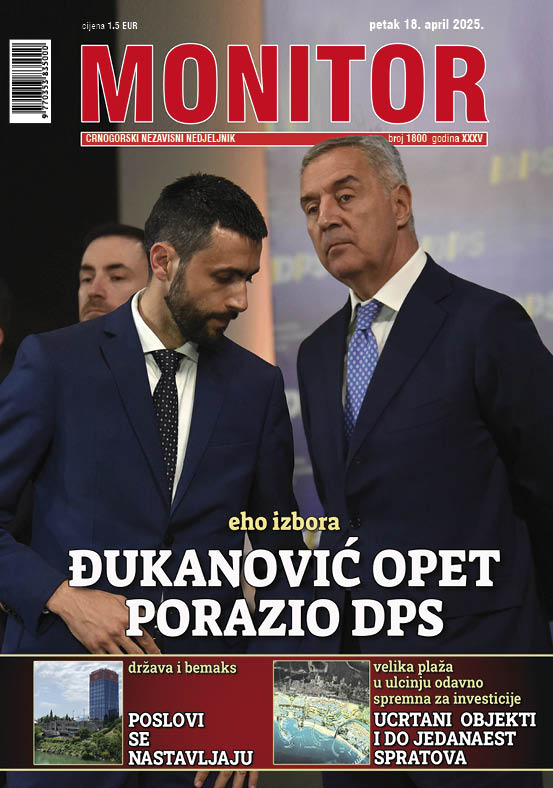

O Filipu Davidu, prosvjetitelju

IN MEMORIAM – MARIO VARGAS LJOSA: Božanski talentovani pripovjedač

SAFET SIJARIĆ “LJUBAV NA MILJACKI”: Roman o ljubavi koja prkosi smrti i pamćenju koje pobjeđuje zaborav
Izdvajamo
-
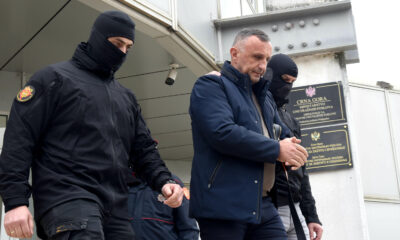
 DRUŠTVO4 sedmice
DRUŠTVO4 sedmiceNOVA HAPŠENJA ZBOG ŠVERCA CIGARETA: Pao i drugi vlasnik Tehnomaxa
-

 IN ENGLISH1 sedmica
IN ENGLISH1 sedmicaGovernment Summons Ambassadors for Consultations and Instructions: A Foreign Policy Tightrope
-

 IN ENGLISH1 sedmica
IN ENGLISH1 sedmicaTWILIGHT OF MONTENEGRIN INTERESTS IN AMERICA: Prayer Breakfast Instead of Real Diplomacy
-

 Izdvojeno4 sedmice
Izdvojeno4 sedmiceVLADA ZVALA AMBASADORE NA RAPORT I INSTRUKCIJE: (Ne)sluh za vanjsku politiku
-

 DRUŠTVO3 sedmice
DRUŠTVO3 sedmiceMUKE TRETMANA OTPADNIH VODA: Projekti koje prate predrasude i loša iskustva
-
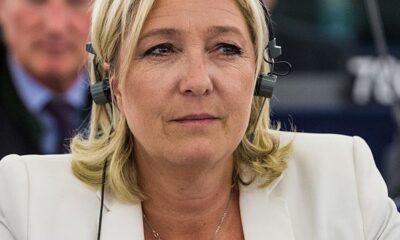
 SVIJET3 sedmice
SVIJET3 sedmiceSLUČAJ MARIN LE PEN: Za desnije sjutra
-
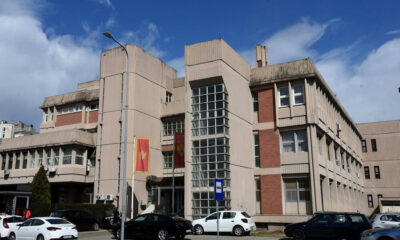
 FOKUS3 sedmice
FOKUS3 sedmiceZARADE U PRAVOSUĐU: Vrh i preko četiri hiljade, ostali duplo manje
-
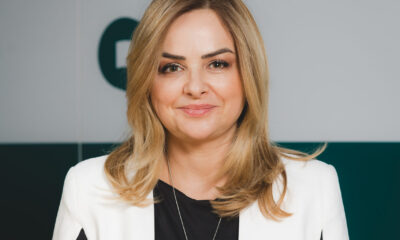
 INTERVJU4 sedmice
INTERVJU4 sedmiceDALIBORKA ULJAREVIĆ, CENTAR ZA GRAĐANSKO OBRAZOVANJE: Nerazminirano polje






